Publications
Articles, publications, books, tools and multimedia features from the U.S. Institute of Peace provide the latest news, analysis, research findings, practitioner guides and reports, all related to the conflict zones and issues that are at the center of the Institute’s work to prevent and reduce violent conflict.
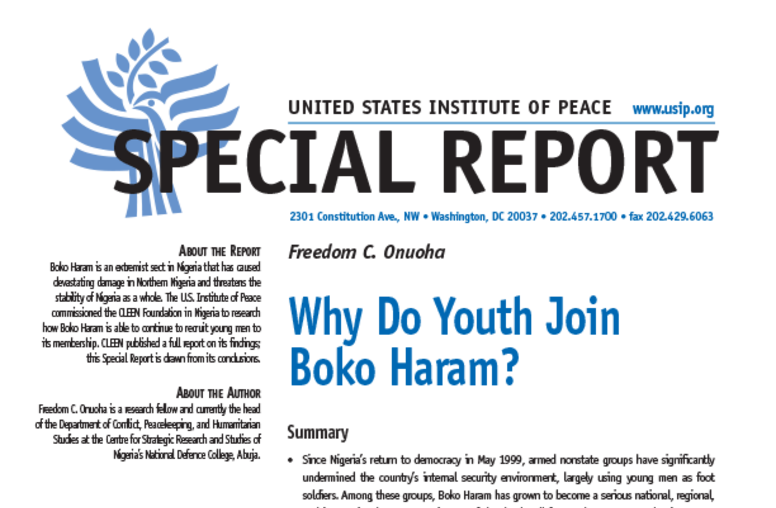
Why Do Youth Join Boko Haram?
Boko Haram’s recent kidnapping of over two hundred schoolgirls in Nigeria has once again brought the group into the international spotlight, making more urgent the questions about how to curtail its activities and the activities of other armed groups that threaten the security of Nigeria and the region. Drawing on the results of a 2013 study in six northern Nigerian states, this report addresses the question of how youth are radicalized and recruited into armed groups and what the Nigerian go...
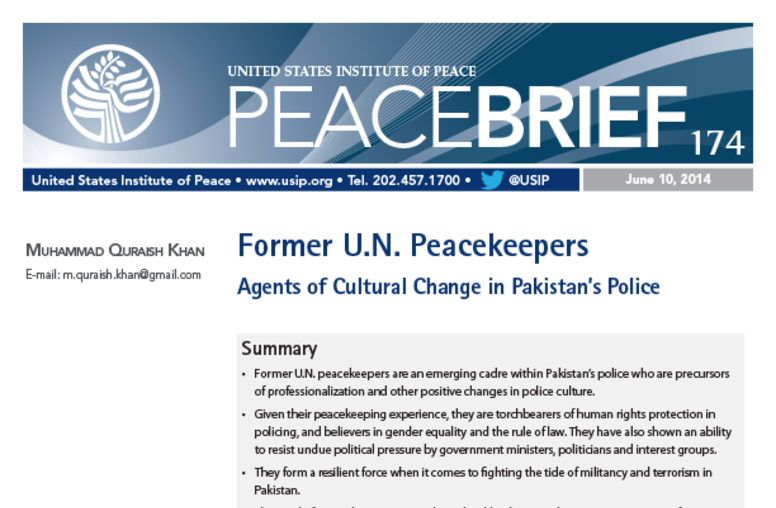
Former U.N. Peacekeepers
Former U.N. peacekeepers are an emerging cadre within Pakistan’s police who are precursors of professionalization and other positive changes in police culture. They are torchbearers of human rights protection in policing and form a resilient force when it comes to fighting the tide of militancy and terrorism in Pakistan.
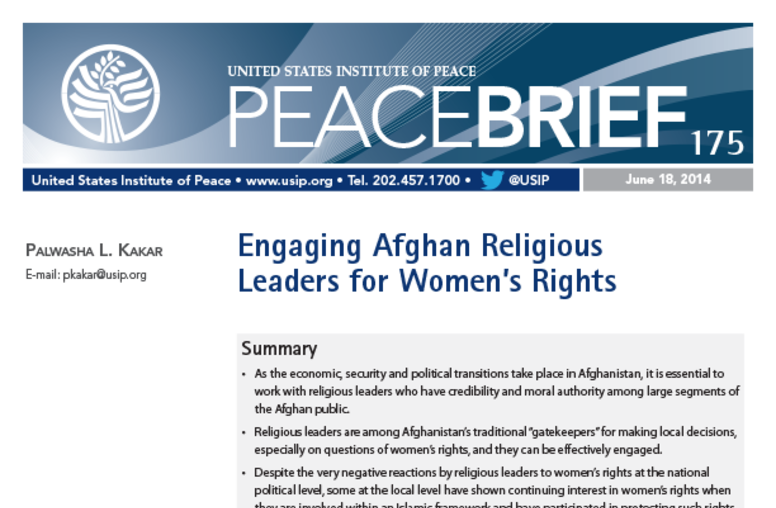
Engaging Afghan Religious Leaders for Women’s Rights
Women’s rights programs in Afghanistan need to work with religious leaders who have moral authority among large segments of the Afghan public. Engaging those traditional leaders who have a track record of supporting women’s rights begins with respecting their opinions and showing the patience to build trust through dialogue. It also requires supporting processes of change that are identified locally and ensuring that local partners take the lead role in the delivery of support as much as poss...

Applying Best Practices to Afghanistan
The United States Institute of Peace (USIP) and the Office of the Special Inspector General for Afghanistan Reconstruction (SIGAR) gathered experts and practitioners from across and outside the U.S. government earlier this spring to assess the lessons and challenges for overseeing aid distributed in active conflict areas such as Afghanistan. The highlights of those discussions are now available in a conference report released today by the two organizations.
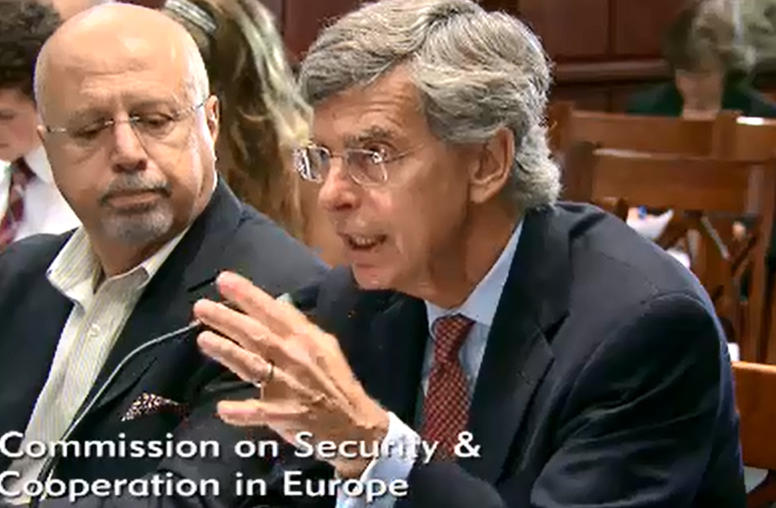
Political Pluralism in the OSCE Mediterranean Partners
William B. Taylor, vice president for Middle East and Africa, testifies before the United States Helsinki Commission on OSCE Mediterranean Partners.
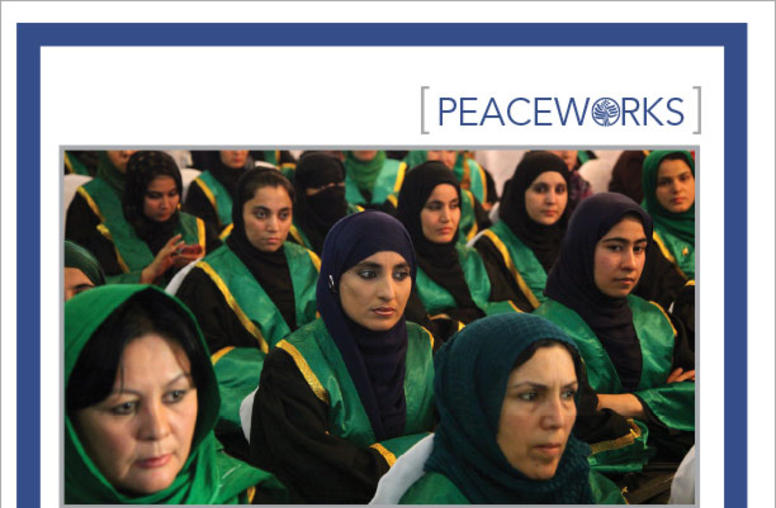
Women's Access to Justice in Afghanistan
Since the fall of the Taliban in 2002, gains in women’s rights and access to justice in Afghanistan have been remarkable, yet women’s rights remain extremely limited. How do women in Afghanistan seek justice when their rights are violated? What barriers do they face in pursuing justice or receiving a fair outcome? This report draws on interviews and focus group discussions held in Afghanistan in 2011 and 2012 to determine answers to these and related questions and to recommend ways forward. ...

Foro de Paz sobre Colombia
Mientras que las conversaciones de paz se reanudan en La Habana, la discusión se concentra en los derechos de las víctimas de verdad, justicia, reparación y garantías de no repetición.
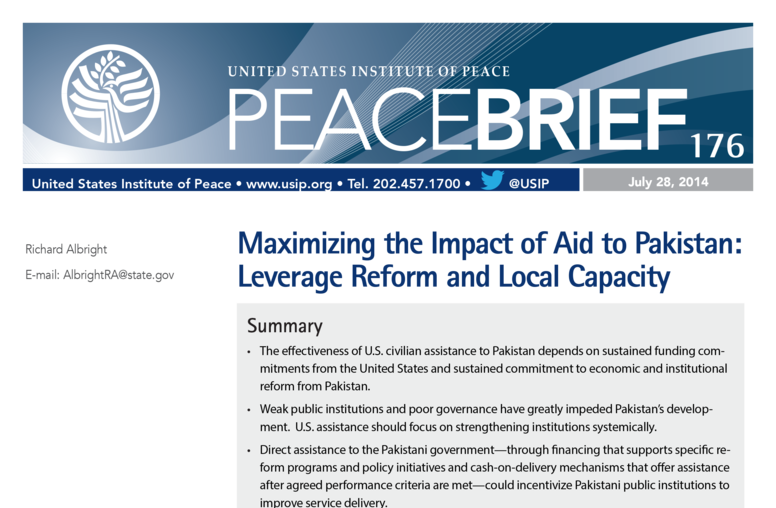
Maximizing the Impact of Aid to Pakistan: Leverage Reform and Local Capacity
Overcoming Pakistan's many challenges, and meeting the development needs of its people, requires working through the institutions of Pakistani governance if sustainable impacts are to be achieved. U.S. aid, if offered consistently and in support of systemic institutional reform, can have a valuable catalytic role to assist and incentivize these efforts.
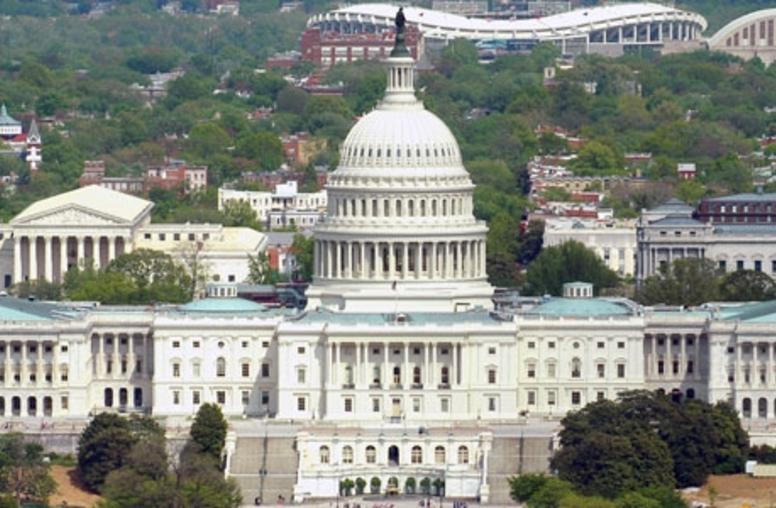
The Shootdown of Malaysian Flight 17 and the Escalating Crisis in Ukraine
William B. Taylor, vice president for Middle East and Africa, testifies before a joint subcommittee hearing: Committee on Foreign Affairs, Subcommittee on Europe, Eurasia and Emerging Threats and the Subcommittee on Terrorism, Nonproliferation, and Trade U.S. House of Representatives
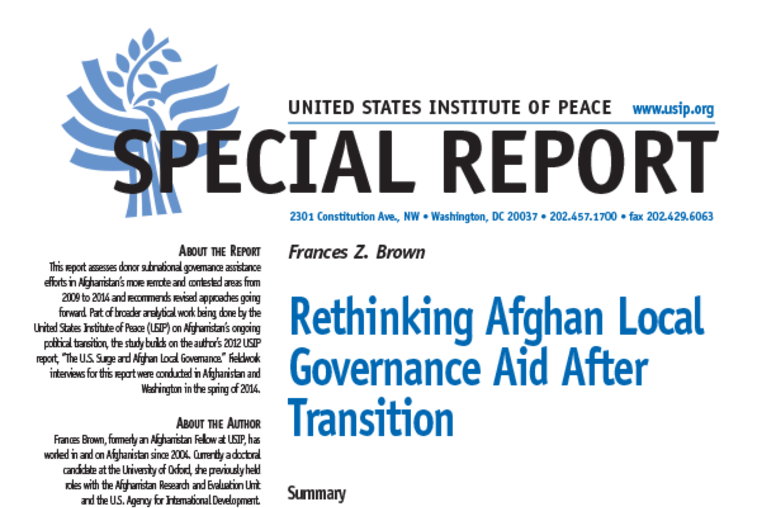
Rethinking Afghan Local Governance Aid After Transition
Thirteen years into the current international campaign in Afghanistan and five years after the U.S.-led military surge of 2009, the drawdown of foreign troops and civilian-military installations is under way. The military struggle and contest for governance between the insurgency and the Kabul government has not been decisively resolved. How aid is delivered to the country’s more remote areas is changing dramatically. It is time for donors to rethink their approaches to local governance and d...